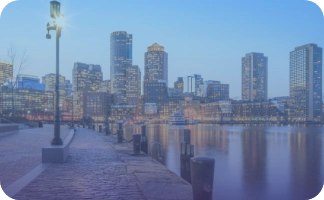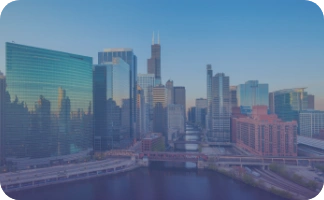Feb 07 5 min read Business Vacation
Safety Tips for Traveling
DEC 02, 2020 4 MIN READ BUSINESS VACATION
Safety Tips for Traveling
Everyone who goes on a vacation or business trip wants a positive experience. To get the most out of the trip, travelers need to take basic safety precautions. Even experienced travelers take steps whether they go to new destinations or familiar locations. Our safety tips for traveling will give you the knowledge to be vigilant and still enjoy the trip.
Research your destination
Take the time to do some in-depth research of your destination. Get to know the area around your hotel or rental. Look for landmarks in the area to help guide you and give you a sense of direction. Locate public transportation hubs and stops to get around the area. Also, investigate the crime rate in the area. Destinations with many tourists tend to have a higher crime rate due to petty theft. You should be aware of scams that are known in the area. One con to watch out for is with taxis. The driver may take off right away when you enter without starting the meter. Upon arrival at the destination, they will tell you the meter is broken and upcharge you for the trip.
Keep photocopies of I.D.s and passport
One of the worst things that can happen is losing your I.D. or passport. Photocopy your state I.D. or passport and leave them in your bag. Another option is to create a digital copy. Place the files on an encrypted thumb drive or laptop for easy access and security. Having a copy of your passport will make it easier to get a replacement while on your trip and get home.
Give your itinerary to family or a friend
Keeping someone in the loop about your whereabouts is a good idea should they need to get in contact with you. Make sure to include the name, address and phone number of where you are staying, and share the time and locations of attractions, museums, stores, or offices you are visiting. Include your flight information: flight numbers, departure and arrival times. You might be taking additional transportation modes like Amtrak or a Greyhound Bus; give your contact that information too.
Carry emergency and medical information with you
Write down your emergency contact information should it be needed during a trip. Include the name and phone number of two contacts. One of those contacts should be the person who has your itinerary.
There is a possibility that a medical emergency can happen on your trip. Add your primary physician and specialists to your emergency contact sheet. If you are taking medications, list the name, dosage, and the time you take them. Wearing a medical alert bracelet or medallion with your condition(s) is essential should you be unconscious. The medical alerts can help paramedics, nurses, or doctors diagnose and treat you.
Secure your valuables when you’re out
When you are making a reservation, you should request a room with a safe. Put any valuables that you will not be wearing or using when you leave the hotel there for safekeeping. Most room safes require you to create a code that you can use later to open it. Make the code something you will remember since you will be the only one who knows it. If you stay in a room that doesn't have a safe, you can keep your valuables in a suitcase. Secure the bag with a suitcase lock and take the key when you leave.
Taking the proper precautions to keep your belongings secure doesn't stop with your room. When parking your car at a PreFlight garage or rental on the trip, keep items out of sight. Use the trunk or glove compartments of the vehicle and secure the locks.
Keep up with your belongings
Losing your purse or wallet is the worst. The best thing you can do is keep those items on your person. If you plan on carrying a wallet place it in your front pants pocket. Purses and camera bags should be strapped around the chest instead of the shoulder. Hoodies, jackets, and sweaters can be wrapped around your waist. Should you need to take any of these things off or out, place them next to you or on your lap.
Bring cash with you
Take a small amount of cash for emergencies, or in case you lose your credit cards. Keep your money separate from your credit cards. If you are traveling with a partner or spouse, have them hold onto the money. Another option is to invest in a money belt; the cash will always be on your person and hidden from prying eyes.
Purchase travel insurance
Protect yourself from unforeseeable events with travel insurance. Travel insurance can help you recoup losses and give you access to assisted services. Before purchasing insurance, research what plans offer and find the one that is right for you. Policies can cover a medical emergency, cancelation fees, replacing lost passports, and more. When going to an international destination, look for travel insurance that specifically states it will cover medical emergencies overseas.
International Safety Tips
When planning your international dream vacation or a business trip, check the United States State Department Website. The website will give you the latest information about traveling overseas, including travel advisories, the documentation to enter foreign countries, customs, and tips to travel safely. While on the website, enroll in the State Department's S.T.E.P. program. The information they collect through the enrollment will help them contact you should a natural disaster, civil unrest, or family emergency occur. As part of the registration, the U.S. Embassy will send information about your destination. The communication intends to help you make decisions when traveling.
Now that you've taken steps to keep yourself safe, do the same for your vehicle, park at one of PreFlight Airport Parking's safe and monitored facilities. Make your parking reservation now!
Reserve Parking Today!
Choose Your Location
 Atlanta
Atlanta Boston
Boston Chicago
Chicago Phoenix
PhoenixPreFlight Locations
 Atlanta
Atlanta Boston
Boston Chicago
Chicago Phoenix
Phoenix